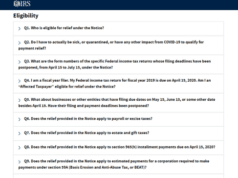
Do you have a plan for your future? For most people, money plays a big role in their lifestyle and wellbeing.
However, studies show that 65 percent of Americans save little to none of their income. This could create serious financial struggles in the long-run. The good news is, there are many ways that you can start saving money today to support your future.
These top finance tips can help you create a sense of security and teach you how to save money fast.
1. Create a Budget
One of the most important factors of saving money is creating a budget. Budgets can help ensure that you stick to a plan and don’t spend more than you make.
The first step in creating a budget is to identify the amount of money you’re making. Be sure to deduct money for taxes and other potential fees.
Next, map out your average fixed expenses like rent, utilities, insurance, or car payments. These will stay roughly the same from month to month. Then, map out your expenses that vary each month like groceries, entertainment, and luxury spending.
This can help you determine where you may need to cut back. Another important part of creating a budget is listing your financial goals.
How much money do you want to save this year? Do you have an expensive trip you need to save money for? Answering these questions can help you set a plan for how much to spend and how much to save.
Finally, many people benefit from allocating a certain amount of money to spend each week on food, groceries, or entertainment. This can ensure that you don’t overspend. When creating your budget, consider laying out your expenses in a spreadsheet to stay organized.
2. Determine Your Needs vs Your Wants
One of the hardest aspects of saving money is sacrificing some “wants” for your needs. “Wants” can be considered as anything you don’t need to survive. This may be a gym membership, buying coffee at your local cafe, or going to the movies. While it can be difficult to cut some of these things out, it’s often necessary to save money.
While wants can make your life feel more comfortable, your needs should be your first priority. Needs are anything that you can’t live without. This may be groceries, mortgage or rent, and transportation. Without proper money to spend on these needs, you may find yourself in serious financial trouble.
Create a list of expenses that are necessary in your day to day life. Then, determine how much these expenses will cost you. Once you’ve ensured that you have enough to meet these payments, then you can set aside a small amount for your wants.
Many recommend allocating 50 percent of your income on needs, 30 percent on wants, and 20 percent on your savings.
3. Have a Retirement Plan
Last year, only 56 percent of working Americans had some sort of workplace retirement plan. If you’re looking to plan for the happy, secure future that you deserve, creating a retirement plan is key.
To learn how to save money for your retirement, you must first list your goals. When do you want to retire? About how much money will you need for necessities?
After you determine your basic needs for retirement, you should identify your financial standing. This can help you determine whether you should adjust your savings or year of retirement.
Many employers have sponsored accounts like 401-(k) or 403(b) that can help you save money for your retirement. Consider placing your retirement savings in one of these accounts or an IRA.
After setting up your retirement account, be sure to re-asses and readjust as you may need throughout the years.
4. Create an Emergency Savings Account
You can never predict when you might need extra money. One of the best ways to save money to protect your future is to create an emergency savings account. These accounts, also known as liquid savings account, allow you to add and withdraw money whenever you need.
It’s important to remember that you should only access money from this account when you’re facing a financial emergency. Some of these emergencies may be job loss, car accident, major home repair, or medical issues. Without an emergency savings account, many of these issues can put a major strain on your financial wellbeing.
To build your emergency savings account, designate a set amount of your income to add to it. You might consider setting up automatic transfers from one bank account into another. This can help you resist temptation to spend the money on something else.
If you come across extra money, consider adding some of it into this account, too. This can help you feel secure and prepared for any emergency that may come your way.
5. Consider Adopting a Cash Only Spending Method
If you have a hard time saving your money, adopting a cash only spending method may help.
Determine which expenses you may be able to buy with cash. This may be things like groceries or clothing. This can help you spend only what you have rather than charging a credit card. This method can help you stay out of debt and stick to a budget.
When switching to a cash only spending method, it’s important to always track your expenses and keep your receipts. By keeping your receipts, you can review exactly how much you’ve spent on certain items and determine whether you need to cut back or not.
You can also use receipts to get coupons or savings codes for future purchases.
6. Reach Out for Help
When saving for a better future, you should never feel afraid to reach out for help. Trusted financial advisors have the tools and knowledge to get your savings and spending habits on track.
At Farmers Bank, trained professionals can provide you with economic opportunities and a better quality of life. You may consider reaching out to one of these professionals to set up a savings account, secure a credit card, or receive assistance on finances.
If you feel stressed about your current financial standing or you want to set up a better financial future, reach out for help today.
Follow These Finance Tips Today
You deserve to feel confident and comfortable with your future. Saving your money can contribute to a more secure and happy lifestyle for you in the long-run. Create a plan to follow these finance tips today and invest in your future today.
For more information on money, business, lifestyle, and more, be sure to check out the rest of our website.








